Gilbert Maurice Jonas (July 22, 1930 – September 21, 2006), was an American businessman and long-time fundraiser for the NAACP.

The United States of America (USA), commonly known as the United States or America, is a country composed of 50 states, a federal district, five major self-governing territories, and various possessions. At 3.8 million square miles, the United States is the world's third or fourth largest country by total area and is slightly smaller than the entire continent of Europe's 3.9 million square miles. With a population of over 327 million people, the U.S. is the third most populous country. The capital is Washington, D.C., and the largest city by population is New York City. Forty-eight states and the capital's federal district are contiguous in North America between Canada and Mexico. The State of Alaska is in the northwest corner of North America, bordered by Canada to the east and across the Bering Strait from Russia to the west. The State of Hawaii is an archipelago in the mid-Pacific Ocean. The U.S. territories are scattered about the Pacific Ocean and the Caribbean Sea, stretching across nine official time zones. The extremely diverse geography, climate, and wildlife of the United States make it one of the world's 17 megadiverse countries.

The National Association for the Advancement of Colored People (NAACP) is a civil rights organization in the United States, formed in 1909 as a bi-racial endeavor to advance justice for African Americans by a group including W. E. B. Du Bois, Mary White Ovington and Moorfield Storey.
Born in Brooklyn, Jonas graduated from Stanford University in 1951, and earned a master's degree in international affairs from Columbia University. After a stint in the Army's public information office, he served as a public relations adviser to the African independence movement in the late 1950s. Later he became acting director of the Far East section of the Peace Corps.

Leland Stanford Junior University is a private research university in Stanford, California. Stanford is known for its academic strength, wealth, proximity to Silicon Valley, and ranking as one of the world's top universities.

Columbia University is a private Ivy League research university in Upper Manhattan, New York City. Established in 1754, Columbia is the oldest institution of higher education in New York and the fifth-oldest institution of higher learning in the United States. It is one of nine colonial colleges founded prior to the Declaration of Independence, seven of which belong to the Ivy League. It has been ranked by numerous major education publications as among the top ten universities in the world.

The Peace Corps is a volunteer program run by the United States government. Its official mission is to provide social and economic development abroad through technical assistance, while promoting mutual understanding between Americans and populations served. Peace Corps Volunteers are American citizens, typically with a college degree, who work abroad for a period of two years after three months of training. Volunteers work with governments, schools, non-profit organizations, non-government organizations, and entrepreneurs in education, business, information technology, agriculture, and the environment. After 24 months of service, volunteers can request an extension of service.
From 1962 till the mid-1990s, Jonas ran the Gilbert Jonas Company, a public relations and fund-raising firm based in Manhattan where he lived. Active in progressive political causes, Jonas served as the N.A.A.C.P.'s chief fund-raiser from 1965 to 1995, helping to raise $110 million for the organization during that period.
In June 1995, Jonas filed suit against the N.A.A.C.P., charging fiscal impropriety and back pay and damages. The suit was settled out of court later that summer, with the N.A.A.C.P. agreeing to pay Mr. Jonas's back pay.
In 2005, Jonas published the book Freedom's Sword: The NAACP and the Struggle Against Racism in America, 1909-1969, with a foreword by civil-rights leader Julian Bond.

Horace Julian Bond was an American social activist and leader in the Civil Rights Movement, politician, professor and writer. While a student at Morehouse College in Atlanta, Georgia, during the early 1960s, he helped to establish the Student Nonviolent Coordinating Committee (SNCC). In 1971 he helped found the Southern Poverty Law Center in Montgomery, Alabama, and served as its first president for nearly a decade.
He is survived by three daughters, Susan Dale Jonas, Jillian Dana Jonas and Stephanie Drew Jonas Stone. His first wife was Barbara Lynn Selby. His second wife Paulette Joyce Thiese.

Edward Louis Bernays was an Austrian-American pioneer in the field of public relations and propaganda, referred to in his obituary as "the father of public relations". Bernays was named one of the 100 most influential Americans of the 20th century by Life. He was the subject of a full length biography by Larry Tye called The Father of Spin (1999) and later an award-winning 2002 documentary for the BBC by Adam Curtis called The Century of the Self. More recently, Bernays is noted as the great-uncle of Netflix co-founder, Marc Randolph.

Irene Amos Morgan, later known as Irene Morgan Kirkaldy, was an African-American woman from Baltimore, Maryland, who was arrested in Middlesex County, Virginia, in 1944 under a state law imposing racial segregation in public facilities and transportation. She was traveling on an interstate bus that operated under federal law and regulations. She refused to give up her seat in what the driver said was the "white section". At the time she worked for a defense contractor on the production line for B-26 Marauders.
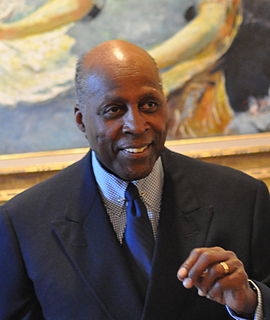
Vernon Eulion Jordan Jr. is an American business executive and civil rights activist in the United States. A leading figure in the Civil Rights Movement, he was chosen by President Bill Clinton as a close adviser. Jordan has become known as an influential figure in American politics.
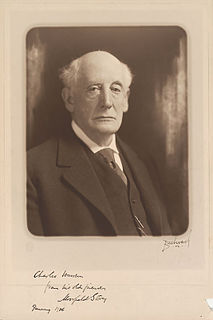
Moorfield Storey was an American lawyer, anti-imperial activist, and civil rights leader based in Boston, Massachusetts. According to Storey's biographer, William B. Hixson, Jr., he had a worldview that embodied "pacifism, anti-imperialism, and racial egalitarianism fully as much as it did laissez-faire and moral tone in government." Storey served as the founding president of the National Association for the Advancement of Colored People (NAACP), serving from 1909 to his death in 1929. He opposed United States expansionism beginning with the Spanish–American War.

The NAACP Legal Defense and Educational Fund, Inc. is a leading United States civil rights organization and law firm based in New York City.

Benjamin Lawson Hooks was an American civil rights leader. A Baptist minister and practicing attorney, he served as executive director of the National Association for the Advancement of Colored People (NAACP) from 1977 to 1992, and throughout his career was a vocal campaigner for civil rights in the United States.

Robert Franklin Williams was an American civil rights leader and author best known for serving as president of the Monroe, North Carolina chapter of the NAACP in the 1950s and into 1961. He succeeded in integrating the local public library and swimming pool in Monroe. At a time of high racial tension and official abuses, Williams promoted armed black self-defense in the United States. In addition, he helped gain support for gubernatorial pardons in 1959 for two young African-American boys who had received lengthy reformatory sentences in what was known as the Kissing Case of 1958. It generated national and international attention and criticism of the state.
The Civil Rights Congress (CRC) was a United States civil rights organization, formed in 1946 at a national conference for radicals and disbanded in 1956. It succeeded the International Labor Defense, the National Federation for Constitutional Liberties, and the National Negro Congress, serving as a defense organization. Beginning about 1948, it became involved in representing African Americans sentenced to death and other highly prominent cases, in part to highlight racial injustice in the United States. After Rosa Lee Ingram and her two teenage sons were sentenced in Georgia, the CRC conducted a national appeals campaign on their behalf, their first for African Americans.
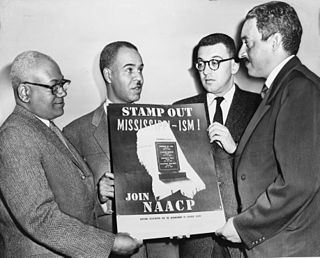
Herbert Hill was the labor director of the National Association for the Advancement of Colored People for decades and was a frequent contributor to New Politics as well as the author of several books. He was later Evjue-Bascom Professor of Afro-American Studies and Industrial Relations at the University of Wisconsin–Madison and eventually emeritus professor. He played a significant role in the civil rights movement in pressuring labor unions to desegregate and to seriously implement measures that would integrate African Americans in the labor market. He was also famous for his belief that American trade unions had downplayed the history of racism that tarred their reputations, before and after the Jim Crow era.

Myrlie Louise Evers–Williams is an American civil rights activist and journalist who worked for over three decades to seek justice for the 1963 murder of her husband Medgar Evers another civil rights activist. She also served as chairwoman of the NAACP, and published several books on topics related to civil rights and her husband’s legacy. On January 21, 2013, she delivered the invocation at the second inauguration of Barack Obama.
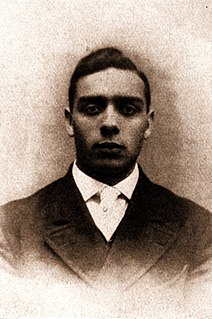
Edwin Bancroft Henderson, was an African-American educator and National Association for the Advancement of Colored People (NAACP) pioneer. The "Father of Black Basketball," introduced basketball to African Americans in Washington, D.C. in 1904, and was Washington's first male African American physical education teacher. From 1926 until his retirement in 1954, Henderson served as director of health and physical education for Washington D.C.'s black schools. An athlete and team player rather than a star, Henderson both taught physical education to African Americans and organized athletic activities in Washington, D.C. and Fairfax County, Virginia, where his grandmother lived and where he returned with his wife in 1910 to raise their family. A prolific letter writer both to newspapers in the Washington D.C. metropolitan area and Alabama, Henderson also helped organize the Fairfax County branch of the NAACP and twice served as President of the Virginia NAACP in the 1950s.

Channing Heggie Tobias was a civil rights activist and 1948 Spingarn Medalist. In 1946 he was appointed to the President's Committee on Civil Rights. He has been called "the Booker T. Washington of his day".
Gladys Noel Bates was an African-American civil rights pioneer, and educator who filed a lawsuit, Gladys Noel Bates vs the State of Mississippi, in 1948 charging salary discrimination against black teachers and principals. Although her lawsuit was not successful, it brought enough attention to the issue of wage equality in education to begin to equalize salaries.
Gerald Henry Frazier Gardner was an Irish mathematician, geophysicist and social activist whose statistical analysis led to the banning of classified advertising segregated by gender in a 1973 ruling by the Supreme Court of the United States in the case Pittsburgh Press Co. v. Pittsburgh Commission on Human Relations. On a professional basis, he did early work on the use of monitoring seismological vibrations to identify deposits of natural gas that became industry standards.

June Shagaloff Alexander is a U.S. civil rights activist.

The New Orleans Branch is the oldest continuously active branch of the National Association for the Advancement of Colored People south of Washington D.C. It was formally chartered on July 15, 1915. However, prior to that time, there had been organizational efforts underway to affiliate with this new national civil rights organization which had first organized in New York City in 1909. In 1911, Emanuel M. Dunn, Paul Landix, Sr. and James E. Gayle wrote to the NAACP national office to obtain more information about this "new abolition movement." Apparently, the locals did not wait for formal action from the national office, but proceeded to organize without official sanction.
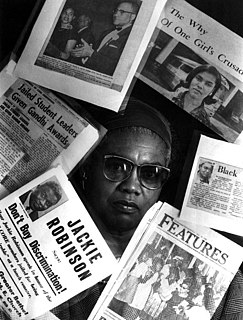
Patricia Stephens Due was one of the leading African-American civil rights activists in the United States, especially in her home state of Florida. Along with her sister Priscilla and others trained in nonviolent protest by CORE, Due spent 49 days in one of the nation's first jail-ins, refusing to pay a fine for sitting in a Woolworth's "White only" lunch counter in Tallahassee, Florida in 1960. Her eyes were damaged by tear gas used by police on students marching to protest such arrests, and she wore dark glasses for the rest of her life. She served in many leadership roles in CORE and the NAACP, fighting against segregated stores, buses, theaters, schools, restaurants, and hotels, protesting unjust laws, and leading one of the most dangerous voter registration efforts in the country in northern Florida in the 1960s.
NAACP v. Button, 371 U.S. 415 (1963), is a 6-to-3 ruling by the Supreme Court of the United States which held that the reservation of jurisdiction by a federal district court did not bar the U.S. Supreme Court from reviewing a state court's ruling, and also overturned certain laws enacted by the state of Virginia in 1956 as part of the Stanley plan and massive resistance, as violating the First and Fourteenth Amendments to the United States Constitution. The statutes here stricken down by the Supreme Court had expanded the definitions of the traditional common law crimes of barratry, champerty, and maintenance and had been targeted at the NAACP and its civil rights litigation.
Hocutt v. Wilson, N.C. Super. Ct. (1933) (unreported), was the first attempt to desegregate higher education in the United States. It was initiated by two African American lawyers from Durham, North Carolina, Conrad O. Pearson and Cecil McCoy, with the support of the National Association for the Advancement of Colored People (NAACP). The case was ultimately dismissed for lack of standing, but it served as a test case for challenging the "separate but equal" doctrine in education and was a precursor to Brown v. Board of Education, 347 U.S. 483 (1954).



















